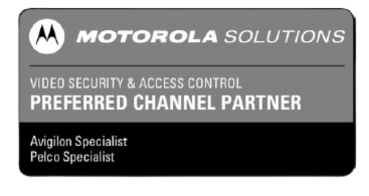Enhancing Security with License Plate Recognition on Mobile Surveillance Trailers
In an ever-evolving world, the need for advanced security measures is paramount. One such cutting-edge technology making waves in the security industry is License Plate Recognition (LPR) on mobile surveillance trailers. These trailers, equipped with state-of-the-art LPR systems, offer unparalleled benefits for law enforcement, event security, and private enterprises. In this blog, we’ll delve into the workings of LPR technology, its applications, and the advantages it brings to mobile surveillance trailers.
What is License Plate Recognition (LPR)?
License Plate Recognition (LPR) is a technology that uses optical character recognition (OCR) to read license plate numbers from vehicles. The system captures images or videos of vehicles and processes them to extract the license plate information. This data can then be used for various purposes, such as monitoring traffic, enforcing parking regulations, and enhancing security measures.
How LPR Works on Mobile Surveillance Trailers
Mobile surveillance trailers are self-contained units equipped with cameras, sensors, and communication systems. When integrated with LPR technology, these trailers become powerful tools for real-time monitoring and data collection. Here’s how it works:
- Image Capture: High-resolution cameras on the trailer capture images or videos of passing vehicles.
- Image Processing: The captured images are processed using OCR algorithms to extract the license plate numbers.
- Data Analysis: The extracted data is analyzed and compared against databases for various purposes, such as identifying stolen vehicles or monitoring traffic patterns.
- Real-Time Alerts: If a match is found in a database (e.g., a stolen vehicle), the system can send real-time alerts to law enforcement or security personnel.
Applications of LPR on Mobile Surveillance Trailers
The versatility of LPR technology makes it suitable for a wide range of applications. Here are some key areas where mobile surveillance trailers with LPR systems are making a significant impact:
Law Enforcement: LPR-equipped trailers help police departments monitor high-traffic areas, identify stolen vehicles, and enforce traffic laws more effectively. They can be deployed in crime hotspots to enhance surveillance and improve response times.
Event Security: Large events, such as concerts or sports games, require robust security measures. Mobile surveillance trailers with LPR systems can monitor vehicle entry and exit points, ensuring only authorized vehicles gain access to restricted areas.
Parking Management: In busy urban areas, managing parking spaces can be a challenge. LPR technology can automate the process of enforcing parking regulations, detecting violations, and optimizing space utilization.
Border Control: At border crossings, mobile surveillance trailers with LPR systems can assist in monitoring vehicle movements, identifying suspect vehicles, and enhancing overall border security.
Private Enterprises: Businesses with large premises, such as warehouses or factories, can benefit from LPR-equipped trailers for monitoring and securing their property, ensuring only authorized vehicles have access.
Advantages of LPR on Mobile Surveillance Trailers
Enhanced Security: The ability to capture and analyze license plate data in real time significantly enhances security measures, providing law enforcement and security personnel with actionable intelligence.
Flexibility and Mobility: Mobile surveillance trailers can be easily relocated to different sites as needed, making them ideal for temporary deployments or changing security needs.
Cost-Effective: Compared to fixed surveillance systems, mobile trailers offer a cost-effective solution for large-scale monitoring without the need for permanent infrastructure.
Scalability: LPR systems can be scaled to meet the needs of various applications, from small events to large urban areas, ensuring comprehensive coverage and adaptability.
Data Integration: Modern LPR systems can integrate with existing security infrastructure, such as CCTV networks and databases, providing a seamless and efficient security solution.
Conclusion
The integration of License Plate Recognition technology on mobile surveillance trailers represents a significant advancement in the field of security and surveillance. By combining the mobility and flexibility of trailers with the precision and efficiency of LPR systems, we can create a safer and more secure environment for communities, events, and private enterprises alike. As technology continues to evolve, the applications and benefits of LPR-equipped mobile surveillance trailers will undoubtedly expand, offering even greater possibilities for enhancing security and safety.
Whether you’re a law enforcement agency looking to improve traffic monitoring, an event organizer aiming to enhance security, or a business seeking to protect your assets, mobile surveillance trailers with LPR technology provide a versatile, effective, and innovative solution to meet your needs.



